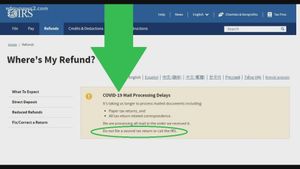Vietnam is making significant strides in enhancing social welfare policies for its elderly population, which is becoming increasingly important as the nation faces rapid demographic shifts. The country is actively implementing various programs and financial support systems to improve the living conditions of senior citizens.
The 2009 Elderly Law, alongside the 2021 Decree No. 20/2021/ND-CP, forms the backbone of Vietnam's strategy for supporting its aging population. These legislative measures stipulate financial assistance for individuals aged 80 and above who do not receive pensions or social insurance. Current regulations grant these seniors social assistance amounting to 360,000 VND (approximately $15) per month.
According to the Ministry of Labor, Invalids and Social Affairs (MOLISA), funding for elderly support is structured according to Vietnam's budget allocations. For the fiscal year 2023 alone, the budget for social assistance programs targeted at the elderly exceeded 28 trillion VND, with significant portions allocated to health insurance coverage for seniors, covering over 1.5 million individuals.
Recent reports indicate remarkable progress—1.5 million elderly citizens receive monthly aid and health insurance cards, and around 10,000 are cared for at social welfare facilities. Notably, 1.2 million elderly individuals benefit from additional support due to their status as war veterans or individuals with meritorious service to the nation.
Beginning July 1, 2024, the government plans to revise the standard social assistance threshold to 500,000 VND per month. This adjustment aims to keep up with the rising living costs and provide additional financial relief to the elderly population.
The current figure of approximately 2.7 million elderly people receiving pensions and subsidies reflects the government's commitment to supporting this demographic. It's noteworthy to mention, as stated by MOLISA representatives, "Around 2.7 million elderly people currently receive monthly pensions and insurance subsidies," showcasing the comprehensive approach taken to bolster the social safety net.
Health care also remains at the forefront of policy discussions concerning the elderly. With over 14.6 million seniors availing health insurance, Vietnam's efforts to integrate health care with welfare policies are paying dividends. The MOLISA reports reveal, "Over 74.3 million elderly people participated in health insurance services, incurring treatment costs exceeding 59.4 trillion VND." This access is key, considering health needs naturally increase with age.
Despite these improvements, significant challenges persist. Almost all elderly citizens experience low incomes, often relying on their children for support, as acknowledged by the MOLISA assessment: "The majority of the elderly live without savings and depend heavily on their children." Such dependency is concerning as the working-age population diminishes, necessitating strengthened support systems.
Looking toward the future, important changes are expected to take effect from July 2025. New provisions under the revised Social Insurance Law will introduce pension benefits for individuals aged 75 and above who lack current retirement funds. This initiative aims to cover approximately 1.2 million seniors, reinforcing efforts to expand social assistance coverage and reduce economic vulnerability.
Vietnam's approach to social welfare for the elderly is multifaceted, addressing immediate needs through assistance programs and long-term strategies by improving pension structures. The positive outcomes from existing policies have garnered international recognition and serve as a benchmark for other nations grappling with similar demographic issues.
Overall, as Vietnam continues to confront the realities of its aging population, proactive adjustments to social welfare systems are fundamental. By balancing immediate aid with sustainable solutions, the Vietnamese government is working to create a future where all seniors can live dignified lives full of dignity and care.



